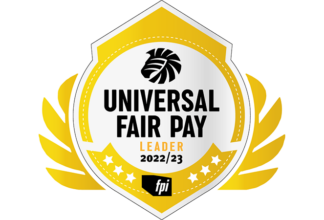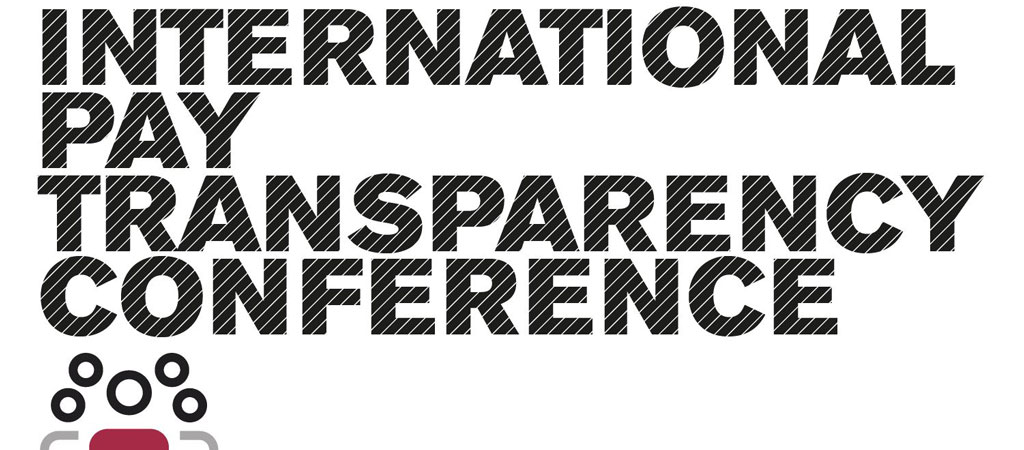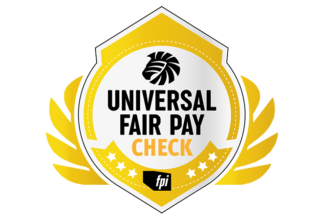Pay transparency: The not so hidden road to equality
This was the International Pay Transparency Conference on July 28, 2021
Laws on pay transparency in Switzerland, France, and the UK, the long-awaited EU draft directive for more transparency, and a strengthening of the right to "Equal Pay for work of equal value" at the European Court of Justice - in the shadow of the pandemic, there has been some encouraging momentum for fair pay. But what is the current state of play? How does this all affect countries and companies? And what needs to be done now? This is what speakers, experts, and interested parties from around the world discussed at the digital International Pay Transparency Conference on July 28, 2021. Here are the results.
Fair pay is on everyone's radar. Various laws on fair pay have been published, adopted, and implemented in the last years. Their overarching theme – pay transparency. The UK has rigorous reporting mechanisms, Iceland established a groundbreaking Equal Pay Standard, France ranks companies on the Gender Equality Index. Just weeks ago, Spain passed two laws enforcing the obligation for companies to audit their pay structures and Ireland followed the British example and introduced reporting standards for companies.
A truly international reunion
This March, the European Commission also published a draft directive on fair pay. It has been long-awaited, and the proposal is bold: It combines the best practices from across Europe – obligations for companies on reports, audits, a right to information for staff, but most importantly, it shifts the burden of proof to companies and introduces fines and sanctions. And the European Court of Justice just recently ruled in favor of fair pay, especially specifying on the principle of equal pay for work of equal value.
The time was just ripe to mingle and discuss all the progress made on pay transparency. The FPI once again teamed up with the Equal Pay International Coalition, and with the support of the Berlin office of the International Labour Organization, brought together international speakers and experts on fair pay in the International Pay Transparency Conference. And the conference was truly international: with speakers and guests from the US, UK, Iceland, Spain, Italy, Belgium, India, and Saudi Arabia – representing companies, trade unions, employer’s organizations, NGOs, and government.
The necessity of pay transparency
When entering discussions on fair pay, one often gets to hear phrases like, “it’s so complicated to calculate all those gaps” or “we have no gaps”. Not on this occasion: Thomas Fischer, Head of Unit in the German Ministry of Family Affairs noted that “we are moving the discussion away from burdens and questions of sheer compliance towards pay transparency as a necessary tool.” Indeed, all speakers agreed that transparency is an absolutely essential means to put fair pay into practice. It is not up for discussion, only the question of how transparency is implemented and what shade of transparency is fitting to the organization’s culture. Marcus Priest, Global Head of Rewards at the international pharmaceutical company Novartis described the company’s engagement in the Equal Pay International Coalition and their way to transparency: “Fair pay is part of the open and transparent culture we are building at Novartis.” Christine Theodorovics, Chief Strategic Development Officer at the international insurance company AXA Group agreed: “There is no magic recipe to fair pay, but many different components will lead to success.” In any way, the key components are commitment – both internal and external – and a dedicated budget to close gaps. Margrét Bjarnadóttir, founder of the Icelandic software company PayAnalytics further elaborated: “Apart from closing pay gaps, it is important to integrate pay equity considerations into compensation processes in order to keep the gaps closed.”
Sanctions, sanctions, sanctions
On the legislative side, the speakers welcomed that so many legal initiatives are currently out there. Dr. Maria Concetta Corinto, Director at the Italian Ministry of Labour and Social Policies called out: “We absolutely support this directive!” Although not all speakers fully supported the current proposal by the European Commission, all agreed that fair pay-related issues, such as combating stereotypes and providing adequate care facilities are equally important. Two major points have been raised when it comes to legal requirements. Firstly: sanctions, sanctions, sanctions. Katharina Miller, President of the European Women Lawyer Association explained: “Without sanctions, nothing works in social rights.” And secondly, reaching fair pay always comes with measuring pay gaps. But measuring gaps can have very different notions. Marie Konstance, Project Lead at the international organization Catalyst, elaborated that “everyone should measure results, not inputs, to show progress – even if the numbers are not perfect.”
The pandemic’s impacts on gender equality
Of course, the International Pay Transparency Conference also shed a light on the ongoing COVID-19 pandemic and its impacts on gender equality. The panel also highlighted the point that there is no backlash because of the pandemic but “women were expected to step down during the COVID pandemic” making “gender equality the unfinished revolution”. Harry Kyriazis, Chairman of the Social Affairs Committee at Business Europe, further noted that “BusinessEurope and its national member organizations, are all strongly committed to gender equality; that is why we engage constructively in the debate on the draft Directive and on other measures that may effectively reduce the gender pay gap”. The International Pay Transparency Conference clearly showed: Pay transparency is a suitable tool to close pay gaps and to keep them closed. Not only companies and civil society actors have demonstrated their support for fair pay. Also participants on the political side stressed clearly: “There is an overarching coalition in the European Parliament and the European Commission to push further for fair pay.” Transparency may have different facets, but all speakers agreed that without transparency, gaps will remain open. The German Minister for Family Affairs Christine Lambrecht concluded that “the discussion about the European Commission's proposal on pay transparency is finally where it belongs – in the public eye.”
We would like to cordially thank the German Federal Ministry for Family Affairs for realizing this conference. We further like to thank our partners, the Equal Pay International Coalition, the founding members ILO, OECD, and UN Women, and especially the ILO Office in Berlin for their hands-on support in making this inspirational event happen!
Results & outlook
The conference whiteboard with major takeaways is available for download here:
Conference Talks
Missed the conference? The panels are still available for viewing under the following links:
Resources and links
During the event, an impressive number of further resources and links were mentioned by our experts from all over the world. We have listed a selection here for anyone interested in exploring the topic of Pay Transparency in greater detail:
- Fair Pay Around the World article series
- The Universal Fair Pay Check explained in 150 seconds
- Friday Coffee Talk from Planet Fair with a special edition on the main takeaways from the International Pay Transparency Conference
- Equal Pay International Coalition
- ILO Global Wage Report 2018/19 – What lies behind gender pay gaps
- ILO Report on the Effects of COVID on Gender Equality
- OECD Gender Data Portal
- UN Women – Generation Equality Forum Global Acceleration Plan for Gender Equality
- European Commission: EU Action on Equal Pay
- Business Europe on the European Commission’s draft on pay transparency
- ETUC on the European Commission’s draft on pay transparency
- ETUC initiative "Equal Pay Needs Trade Unions"
- Court Case on Fair Pay in Germany Birte Meier ./.ZDF
- Gender and Diversity KPI Alliance

Gold medal for BMW
Press release of the BMW AG from 07 March 2023 Munich. BMW AG is the first company in Germany to be awarded top-level…
Read
Universal Fair Pay Check
Faire Bezahlung für alle: Der Universal Fair Pay Check sorgt für Orientierung im Maßnahmendschungel und setzt dem Zertifzierungschaos ein Ende.
MEHR LESEN
FAIR PAY MANAGEMENT CIRCLE
Unser Anliegen ist die praktische Umsetzung von Lohngerechtigkeit im Unternehmensalltag. Doch wie gelingt eine nachhaltige Entgeltstrategie, und macht sie sich am Ende bezahlt?
MEHR LESEN


